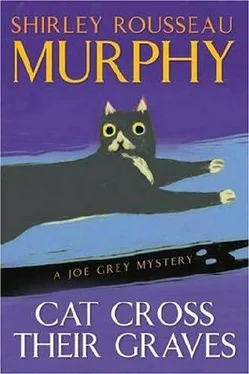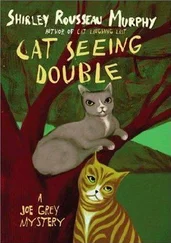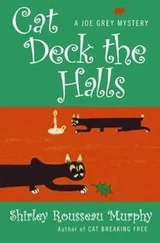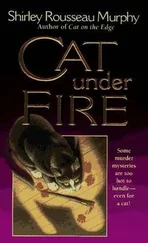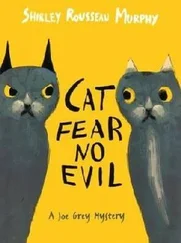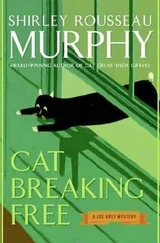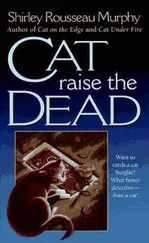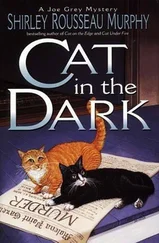Genelle smiled. "You remember the correct way to say Celtic. I hear Cora Lee coming with breakfast; she'll be happy that we have company." Reaching for her walker and pulling it to her, the old woman rose unsteadily, leaning into the metal cage. Lori wanted to steady it as she had for Mama, but the old woman seemed so self-sufficient that she was shy about offering help. And the old woman moved slowly to the table.
"Cora Lee lives down the street," Genelle said as she swung herself from the walker into the wicker chair, shoving the walker aside. "She's my neighbor, one of the four ladies who come to help me out. They've been very kind." She hadn't touched her oxygen cart. Mama, when she was so sick, if she got the least bit excited she had to put on the oxygen mask. "Cora Lee's a singer, she's with our Little Theater. She's quite wonderful."
Cora Lee appeared on the terrace carrying a tray. The smell of breakfast, of bacon and pancakes and syrup, wrapped around Lori like warm arms. Made her long for Mama and for their little pine kitchen in Greenville where they'd been so cozy. Lori knew Cora Lee, too, knew this tall woman, knew her from the library when she, Lori, was little. She was the first lady with darker skin that Lori had ever seen; she used to come in the reference room and talk with Mama. She was so beautiful with her close-cropped curly black hair and her dusky complexion, with her creamy silk dresses and long legs. Lori hoped Cora Lee wouldn't remember her. She kept very quiet, and she breathed easier again when Cora Lee went back to the kitchen for another plate and silverware and a glass of milk.
"When I die," Genelle said, "I'm leaving the household things to Cora Lee and her three friends to help pay for their new home. Oh, they know about it, it's no secret."
Lori squirmed and stared at her hands.
"Child, one can talk about death. Death is a natural thing. At my age, I have a special license to talk about anything I choose-I can say what I wish!"
That made Lori smile.
"I figure if the four ladies have an estate sale of my things, they can clean up. There are some fine old antiques and paintings, and my jewelry. The house and some other property I own go to the library. I have no one else." Genelle looked at her, gently amused. "I'm quite matter-of-fact about death, it doesn't scare me anymore. Now I'm more curious than afraid. Like Reepicheep, I keep wondering what exactly does come next. What that world will be like."
"Does something come next?" Lori whispered. "How can you know that? How could anyone be sure?"
Cora Lee sat down at the table where she could see the garden, and served Genelle and Lori's plates from a huge stack of pancakes. She took two small cakes for herself, passed the bacon around, and poured two cups of coffee.
"You can't doubt that there's more after this life?" Genelle said softly to Lori. "Sometimes, don't you sense your mother nearby?"
"Maybe," Lori whispered, glancing uneasily at Cora Lee. "I want to."
Genelle put sugar and cream in her coffee, looking over at Lori as casually as if they were talking about the weather. "Someone once said that this world is a nursery for souls."
"Like school lessons?" Lori said with dismay.
Genelle laughed, and slathered butter on her pancakes. "No, I don't think of it like that." Lori had already buttered her pancakes and poured on syrup; she tried to eat slowly, but they were so good. She couldn't get them and the hot crisp bacon down fast enough. "I think we just dive into this world," Genelle said, "and start swimming-among all its splendor and its pain. That we make the best strokes we can, swim the best we can. That we make a little glory around us, or we don't. Does that make any sense to you?"
Lori nodded, chewing. She wasn't sure. A picture came in her head of Mama diving down through green water to be with her, but then turning and flying away again too soon. Genelle looked up at Cora Lee. "You look tired, my dear."
Cora Lee nodded. "I guess we're both tired, grieving for Patty. Did you sleep at all?"
"Yes, my dear. I slept. My grieving is partly a celebration of Patty's life and what she did. It… it's the shock of how she died that's so hard."
Cora Lee nodded.
"But you did not sleep well," Genelle said.
"There… there was… some excitement at our place. We were up late." Cora Lee's voice was soft as velvet. Instead of saying more, she opened the morning paper that she had brought on the breakfast tray and handed it to Genelle.
Large on the front page was the picture of a skull and part of a skeleton. A man in a white coat knelt over the small bones half buried in the dirt with weeds growing around them. The bones of a child. Shivering, Lori rose and stood behind Genelle where she could read over her shoulder.
The grave of a child was discovered yesterday at 2792 Willow Lane, when Cora Lee French, one of the four owners, was digging weeds in the back garden. Another resident, Mavity Flowers, was also present, along with the police chief's wife, Charlie Harper. When Ms. French uncovered the child's small hand…
The picture of the child's skeleton shocked Lori so that she backed away. Cora Lee reached to take her hand. "It scared me," Cora Lee said. "Reminded me of something that happened when I was a little girl. The police came-Captain Harper and both detectives and then the coroner. And later a forensic anthropologist. But the paper says that." Cora Lee did not talk down to Lori, like in juvenile hall where some of the case workers had talked down to her because she was twelve. Like if you weren't grown up, you couldn't understand anything.
The identity of the child is not known, nor has the cause or date of death yet been determined. The child has a wound in the skull. Police have cordoned off the area and guards are posted. They request that residents stay away. Forensic anthropologist Dr. Alan Hyden has…
Lori read with more interest, her fear subsiding. No one knew how old the body was, or if it was a boy or a girl. Couldn't they tell? The child was about nine, Younger than me, Lori thought. The police and anthropologists were still digging, as if there might be more bodies, when the paper went to press. As she read, Lori glanced up the garden at the cat among the boulders. It was still watching them, staring so hard that it almost seemed to be listening. And it did look like Dulcie. Same black, curving stripes, same tilt of its head. Beside Lori, Genelle watched the cat, too. When Lori thought about dead children, she thought about throwaway children in the foster homes. That was what the cook in juvenile called them, throwaway children that no one wanted. She watched Genelle pull her oxygen mask to her, and breathe deeply. She didn't realize she was pressing against the old lady until she felt Genelle's arm around her. She hoped she wouldn't be afraid to walk back down the hill to the library now, after seeing that picture.
She'd be safe once she was inside, though. He wouldn't dare come in there after her, would he? Had he killed that child, years ago? How long had that body been there? When she went into the library, if she put the screws back in the window lock, maybe he couldn't get in. The rest of the library was locked tight. When she looked up, Cora Lee was watching her almost as if she knew what Lori was thinking-and as if she really cared.

Insistent fingers of icy dawn wind crept through the thinnest crack beneath the closed tearoom door, and across the pine floor, and rattled the windows; but bright flames snapped on the stone hearth, pressing back the dark, reflecting across the little table that was set before the fireplace. The welcome blaze warmed the faces of Detective Garza and dark-haired Dorothy Street, and warmed the gray tomcat, too, where he crouched above them, unseen, atop the tallest china cabinet. Firelight danced across the brightly flowered curtains and braided rugs, across the hand-rubbed blue walls and the flowery-papered walls, turning the small room into a retreat as cozy as a quilted cat basket. The brown wicker tables and wicker chairs gave the tearoom a homey charm that, Joe knew, Dulcie had always loved, an ambience that, until the tomcat had known Dulcie, he would never have thought about. Before both cats' perceptions warped so inexplicably into a vastly wider view of the world, he'd had no eye for beauty, homey or otherwise.
Читать дальше
